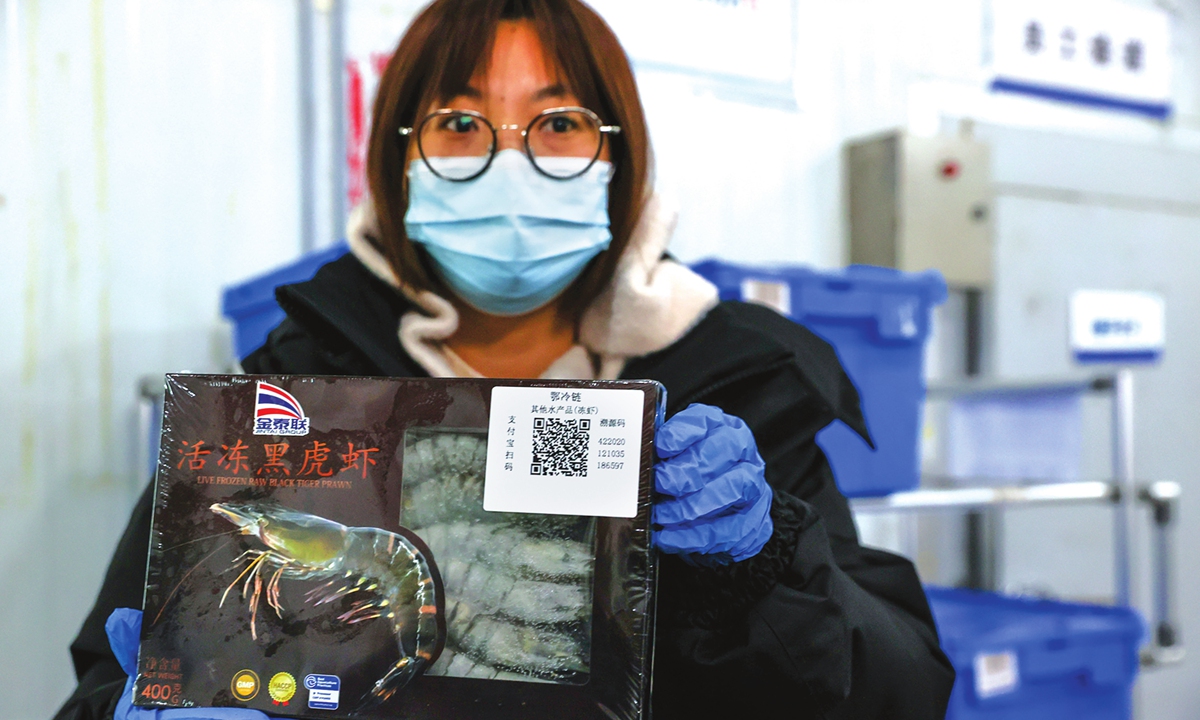
A supermarket salesperson puts a QR code on a box of black tiger shrimps imported from Thailand on Thursday in Wuhan, Central China’s Hubei Province. This was the first code generated in the province’s tracking platform for imported cold-chain food, a system to guarantee traceability of such food in case of coronavirus contamination. Photo: cnsphoto
Aliyun announced a self-developed cold chain tracking system on Thursday, Chinanews reported. According to the report, the system has already been used in Hubei, Zhejiang and Henan provinces this year.The system can issue a “digital ID” for cold chain food, allowing tracking of the food from the first stop in the supply chain to the consumer purchase point, ensuring the safety of cold chain food.
The system provides information including the record of cold food storage, the main body of the cold chain, the inflow and outflow of cold chain food and the production and sales of different types of cold chain food.
Retailers or companies can easily assign QR codes for the food that can be scanned on PC terminals or by mobile apps. Retailers can check the supply chain flow of cold chain food by scanning the QR code with the Alipay app, said the report.
The system has played an important role in the investigation and handling of cold chain food, including packaging for a batch of frozen pork from Argentina that tested positive for coronavirus in Zhengzhou, Henan Province.
Because the supply chain information for the pork had been updated into the cold chain food tracking system, the local CDC tracked the import company, related quarantine certificates and transportation vehicles information to get a lock on the goods in a short time and avoid the further spread of the coronavirus.
